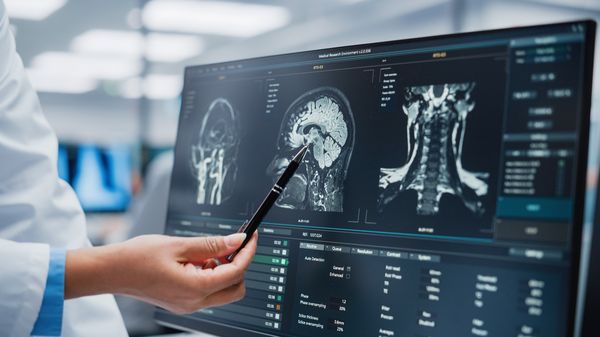Acute brain injury is another term for severe brain injury. The medical definition is a brain injury that results in loss of consciousness for 6 hours or more and rates a score of 3 to 8 on the Glasgow Coma Scale. When you or a family member suffers harm from another person’s negligence that causes coma or other brain damage, speak with a San Luis Obispo brain injury attorney to discuss your legal options.

Using the Glasgow Coma Scale to diagnose TBI
This is a system used by physicians and other medical personnel to diagnose and assess the symptoms of a Traumatic Brain Injury (TBI). It is a 15-point scale that measures motor responses (muscular movement), verbal responses (speech, sounds), and eye movement.
Scoring on the Glasgow Coma Scale
How are brain injury severities graded? Physicians use several methods to total the number of points, with the following classifications:
- 13 – 15 – Mild disability
- 9 – 12 – Moderate disability
- 3 – 8 – Severe disability, reflecting a coma (unconscious state) where there are no meaningful responses or voluntary activities
- 0 – 2 – Vegetative state
The Glasgow Coma Scale provides a standardized assessment that can be updated as the patient’s condition changes. Although the word “coma” is in the name, it measures the state of the victim’s consciousness, including how awake, alert, and oriented they are. Elements of this diagnostic instrument are part of every brain injury medical evaluation.
Common effects of a severe TBI
The most common form of TBI is a concussion, which can cause anywhere from mild to severe brain damage. Other causes can include assault, car accidents, product malfunctions, and accidents on someone else’s property. Patients may suffer other injuries that make recovering from a TBI harder.
Severe TBIs cause a range of both immediate and longer-lasting effects. According to the Mayo Clinic, patients may experience the following symptoms and conditions in the first few hours to days after their injury:
- Blacking out or losing consciousness for minutes to hours at a time
- Cerebrospinal fluid leaking from the ears or nose
- Coma or difficulty being awakened
- Dilated pupils
- Extreme confusion or loss of cognitive function
- Persistent headache
- Poor coordination or muscle weakness
- Seizures or convulsions
- Slurred speech
- Vomiting or nausea
In addition to these initial conditions, the National Institutes of Health reports that acute brain injury victims may be at higher risk for stroke, seizures, blood clots, and brain infections as time passes. They can face exorbitant medical costs as they fight to recover from their condition and the other medical issues that result. Other long-term effects include:
- Issues with learning new information, remembering past skills or experiences, making decisions, and executive function
- Sensory problems such as double vision, hearing loss, change or loss of smell and taste, and tinnitus
- Communication disorders, including difficulty speaking and understanding what they hear, read, or see, as well as problems expressing emotions or thoughts
- Behavioral changes such as inability to read social cues, maintain relationships, regulate self-control, and higher aggression than before the injury
- Mood disorders such as anxiety, depression, irritability, and uncontrollable mood swings
Further, patients may be prone to developing degenerative brain diseases as they age, including Alzheimer’s disease, Parkinson’s disease, and chronic traumatic encephalopathy. If a victim had no family history of these illnesses, their medical records could be used to establish a link between the harm caused by another’s negligent actions and the patient’s damages due to the injury.
Can you recover from a severe brain injury?
Severe TBIs can drastically alter a person’s future, causing permanent disability and devastating medical conditions. If a person survives, it can take a long time to determine how well they will recover and even longer to return to society. In some cases, they can be left unable to work or care for themselves, requiring extensive treatment and attention.
Victims who develop an acute brain injury because of another person’s negligent or intentional actions deserve superior legal representation from a law firm that provides capable and compassionate guidance. If you or a loved one has experienced an acute brain injury due to negligence by another person, contact Ernst Law Group and schedule a free consultation with a San Luis Obispo brain injury attorney by calling (805) 541-0300 today.


